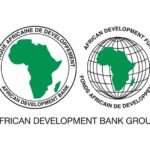Nigeria is on the brink of losing funding for the second phase of the Special Agro-Industrial Processing Zones (SAPZs) due to systemic delays and bottlenecks in the implementation of phase one, which attracted a $538 million loan.
SAPZs secured the $538 million in co-finance from the African Development Bank Group, the International Fund for Agricultural Development (IFAD), the Islamic Development Bank (IsDB) with the federal government also contributing to the fund.
Launched in 2022, the SAPZs project seeks to establish agro hubs that integrate the production, processing and distribution of specific crops and livestock in order to promote economic diversification, boost incomes, improve livelihoods and ensure food security.
However, since 2022, the project has not gained much traction in the states – two years before the first phase ends – and stakeholders are concerned that it is doubtful that another facility will be secured for the second phase.
- APC to Amaechi: If truly those in power steal money, why can’t you afford diesel?
- Gombe to begin N70,000 minimum wage payment October
Given that phase one implementation is plagued by delays and that the current AFDB president, Dr Akinwumi Adesina, is leaving office in less than two years, the nation might not have the push it needs to draw in another funding.
Dr Adesina first proposed the SAPZs while serving as Nigeria’s Minister of Agriculture, but the proposal was never implemented because one of the ministers opposed it at the Federal Executive Council, according to sources.
However, when he became president of the AFDB, he implemented the idea, assisting numerous countries, including Ethiopia, in achieving greater success.
Citing SAPZ’s achievements in other nations, stakeholders have called for the implementation of phase one as quickly as possible to prevent this repercussion.
The Phase 1, which covers seven states (Cross River, Imo, Kaduna, Kano, Kwara, Ogun and Oyo) and the Federal Capital Territory, seeks to attract $1 billion in private investment and to significantly reduce post-harvest losses.
Prof. Oyebanji Oyelaran-Oyeyinka, Senior Special Advisor to the AfDB President, Dr. Akinwumi Adesina, stated that the SAPZs are the ideal model for pulling Nigeria out of the current food supply and unemployment predicaments.
While making a presentation during the Special Agro-Industrial Processing Zones States Steering and Technical Committee Workshop and Validation of the SAPZ Programme Operational Guidelines in Abuja, he warned that unless things picked up fast, the second funding may not happen.
“The Special Agro-Industrial Processing Zones programme has the potential to transform Nigeria’s economy, especially the rural areas, and put us on a consistent path to industrialization,” Prof. Oyebanji said.
Prof. Oyelaran-Oyeyinka said the success of Phase 1 is crucial for the approval and implementation of Phase 2, which aims to expand the programme nationwide. The SAPZs programme represents a significant opportunity for Nigeria to leverage its agricultural potential and achieve sustainable economic growth.
But Dr Abdul Kamara, the Director General of the AfDB’s Nigeria Country Department, however, feels the recent meeting with stakeholders in Abuja was intended to improve cooperation among important parties to fast-track implementation.
Others, like the SAPZ’s National Project Coordinator, Dr Kabir Yusuf, see the initiative as having the potential to drive the development and modernisation of the Nigerian agro-economy.
According to him, the initiative would create the catalytic infrastructure needed to draw capital into value-added processing, which will lower transaction costs and de-risk the agriculture industry, adding that “we will be able to provide investors with cheap and affordable power at a minimal cost, sustainable power that will enable them to produce such that their output will be very cheap.”

 Join Daily Trust WhatsApp Community For Quick Access To News and Happenings Around You.
Join Daily Trust WhatsApp Community For Quick Access To News and Happenings Around You.


